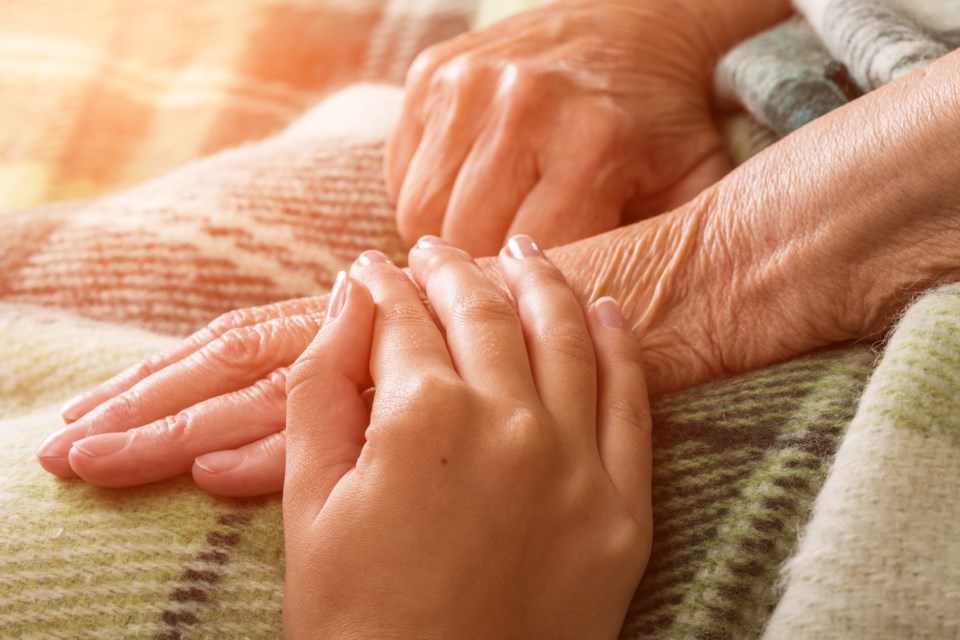In the aftermath of social distancing measures, a City of Cambridge volunteer program is highlighting the importance of relationships for the health and wellbeing of individuals.
The Friendly Visitor program is a community support service funded by the Minister of Health and it has been running in Cambridge for 25 years. The free program aims to serve 267 seniors within the community who have limited social connections outside the home. Each year, volunteers dedicate over 5,000 hours to the program as visitors.
Nicole Cichello is the supervisor for older adult services with the City of Cambridge. She said volunteers go through training to provide a social service, including sharing conversations with participants, reading a book, going for a walk, playing cards and games, or trips to a cafe or the mall.
That said, Cichello emphasized that not everyone who lives alone is lonely and some like to be alone. To qualify for the program, individuals are self-identified or recommended into the program based on demonstrated need.
"We know that social isolation has negative health outcomes, if you have limited social connections," said Cichello. "We know that over time individuals and their caregivers begin to isolate themselves, and become socially withdrawn, as they find it more difficult to stay connected to friends and the community or to leave the safety and comfort of their home, whether that's due to a disability or financial restrictions for transportation, like there is a whole host of reasons people become socially withdrawn."
The connections formed in the friendly visitor program also provide health benefits for participants. Cichello said recent studies found social isolation significantly increases the person's risk of premature death compared to smoking or obesity. She adds poor social relationships also increase the risk of heart disease by 29 per cent and stroke by 32 per cent.
"For the older adults in COVID, there was a marked decline in health, right? In all different areas, because people weren't getting out, they weren't engaged, they weren't grocery shopping and you saw the decline in a lot of older, more frail adults, during that COVID period," said Cichello.
While volunteers fill a social or recreational role, Cichello said that is the extent of the services they offer participants.
"Volunteers are not responsible or don't provide any personal care, they don't do housekeeping, they don't do meal prepping, they don't do grocery shopping or provide any medical care, it is strictly a social and recreational program," said Cichello.
During the pandemic, Cichello said the Without Walls (WOW) telephone program was brought in to help provide companionship to participants who volunteers were unable to see in-person for the Friendly Visitor program.
The WOW program allowed small groups of five to 10 participants in a group call where they played games together, listened to guest speakers and formed relationships over the phone. After WOW was introduced, Cichello said it helped provide relief for caregivers.
"WOW is something we have chosen to continue to do even after COVID once we could return to in-person visits, simply so that we could continue to serve people who were on our waiting lists," said Cichello, adding they are looking to include more caregiver support and a resource library for volunteers in the Friendly Visitor program.
While the WOW program is continuing, Cichello said they are still seeking more volunteers for in-person visits as the population in Cambridge continues to age, especially those within more vulnerable community groups. To be a volunteer in the Friendly Visitor program, residents must be over the age of 18, have a criminal background check and can make a long term commitment.
With many people experiencing isolation during lockdown measures, Cichello has noticed an increased desire in new volunteers to help out. She adds there is also a fair number of volunteer applications coming in, despite the decrease in previous volunteers.
"I feel like the fact that they have gone through the lockdown now first hand themselves, they have a better understanding of what social isolation is," said Cichello, "because social isolation wasn't new, COVID didn't bring the social isolation, it existed before, so I feel like there is a new awareness for our volunteers about how significant of an impact they have when they are going out to meet someone who might only have a visit once a week."


.png;w=120;h=80;mode=crop)
.png;w=120;h=80;mode=crop)